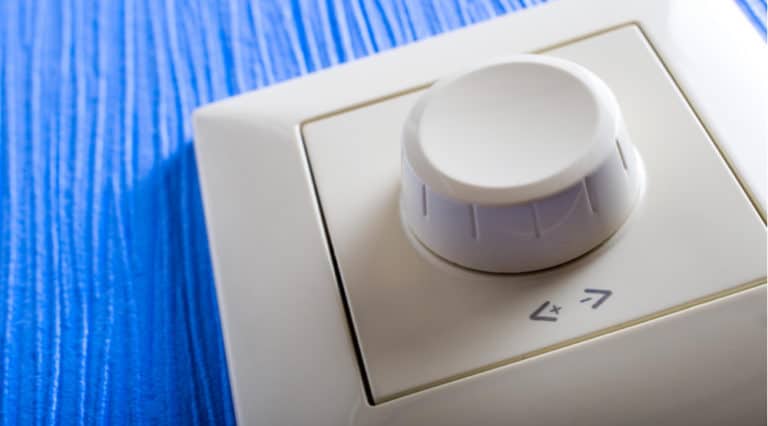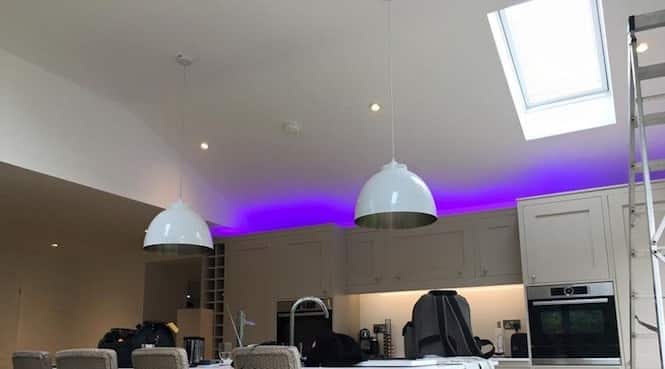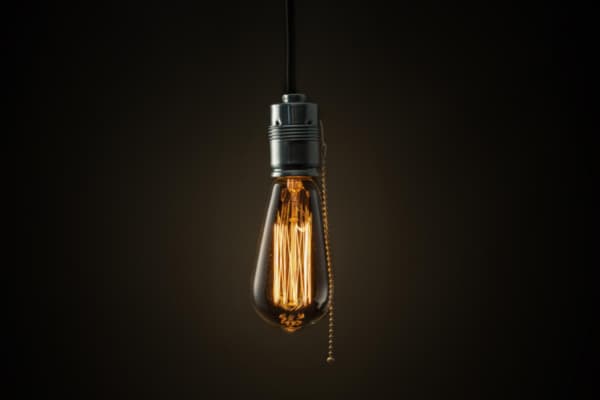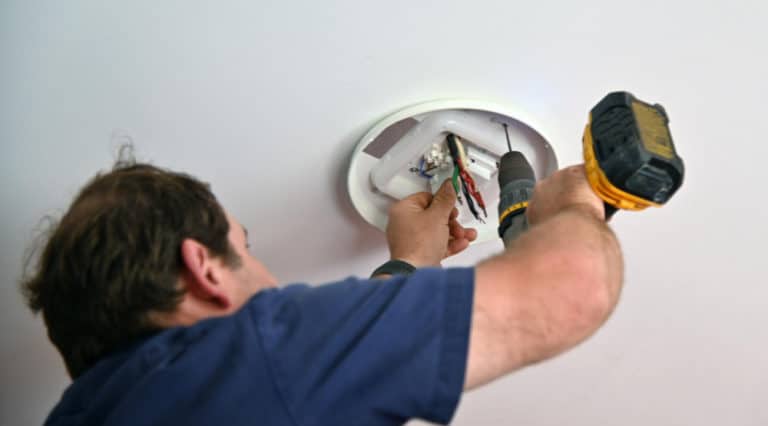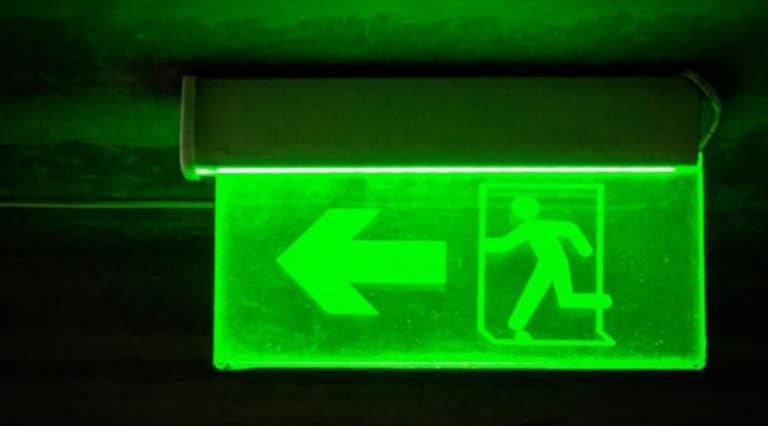Find My Local Expert What to Do if your dimmer...
Read More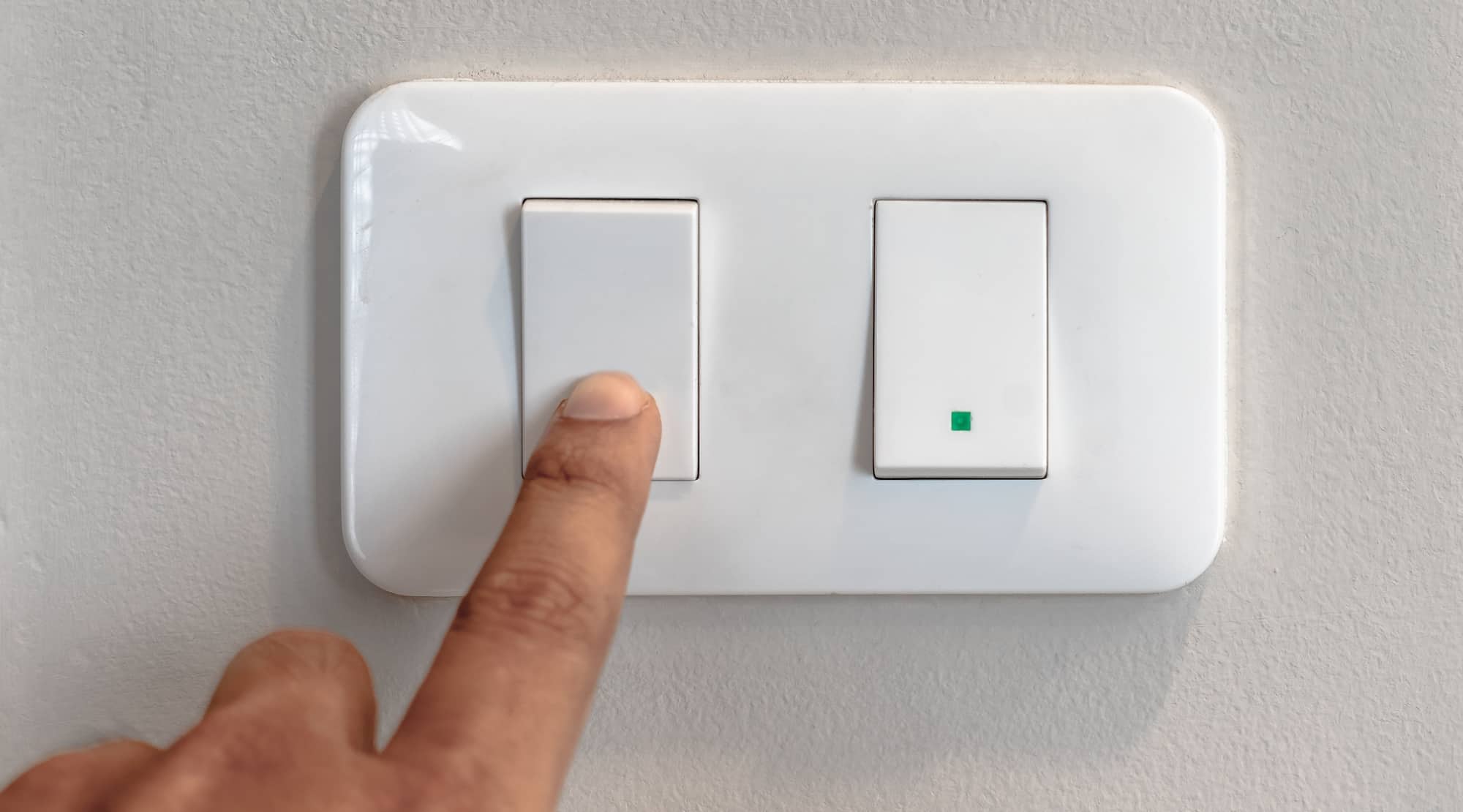
Don't Ignore That Buzzing Light Switch – Here's Why It Matters
Have you ever noticed a buzzing sound coming from your light switch? It can be quite annoying and concerning, especially if you’re not sure what’s causing it. But don’t worry, you’re not alone in experiencing this issue.
There are a few potential reasons why your light switch is buzzing, and it’s important to identify the cause and address it to avoid any potential safety hazards. In this article, we’ll explore some of the common causes of buzzing light switches and what you can do to fix the problem.
So if you’re tired of that annoying buzzing sound every time you flip your switch, keep reading to learn more about why it’s happening and how to fix it.
How Does it Work?
Have you ever wondered how a regular light switch works? It’s quite simple, really. A light switch is essentially a toggle that turns on and off the flow of electricity to your light fixture.
Behind the switch, there are insulated wires that are connected to the switch contacts. When you flip the switch, a metal toggle moves to complete or break a circuit, allowing the electricity to flow or stop flowing.
The incoming power supply wire is connected to the switch, and the outgoing wire carries the current to the light fixture. Additionally, there may be ground wires and neutral wires for safety purposes.
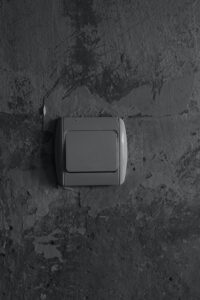
It’s important to note that different types of light bulbs require different types of switches. For example, incandescent bulbs can be used with standard single-pole light switches, while dimmer switches are compatible with specific types of bulbs and are useful for controlling light output.
Now that you know how a regular light switch works, you can better understand what might be causing that buzzing sound or flickering light. Loose wire connections, worn-out switches, and damaged components can all contribute to electrical issues. So if you’re experiencing any problems with your light switch, it’s best to call in a professional electrician to safely diagnose and repair the issue.
What's causing the buzz?

This is a common problem that may be caused by different reasons. One of them is using light bulbs with high wattage than what the switch can handle. It can also happen when the switch is incompatible with other electrical components in your home, leading to electrical arcing and a buzzing sound.
Sometimes due to the previous owner’s DIY fix or a dodgy switch, it can cause the switch to buzz. Additionally, insulated wires can become loose or damaged with time, causing the switch to buzz. It’s crucial to use high-quality switches that are compatible with your electrical system. If you have modern dimmer switch installations, ensure they are also compatible with your light fixtures.
Another potential cause of a buzzing switch is worn-out or damaged switch contacts. Black and hot wire connections may loosen over time, which can also lead to buzzing sounds. It can also happen when incoming hot connects with neutral because of loose wire connections. Always ensure the power supply wire is turned off to avoid damage if you’re checking on your wires. By checking your switch, you can determine the exact problem and fix it quickly, avoiding any further damage.
Common Reasons Why Your Light Switch is Buzzing
A buzzing light switch can be quite a nuisance, but it’s important to address the issue before it gets worse. Here are some common reasons your light switch may be buzzing:
- High Bulb Wattage
- Switch & Light Bulb Compatibility
- Electrical arcing
- Overloading
- Loose wiring
- Wear & Tear
It’s important to address these issues as soon as possible to prevent potential fire hazards. If you have a dimmer switch, it’s normal to hear a light humming sound. However, if the buzzing is louder than usual, it’s best to seek the help of a licensed electrician to ensure your safety.
High Bulb Wattage
If you hear a buzzing sound coming from your light switch, high bulb wattage may be the culprit. One of the solutions to this issue is reducing the number of bulbs assigned to the switch. This will decrease the electrical load that the switch needs to handle, ultimately eliminating the buzzing sound. Alternatively, you can switch to bulbs that are compatible with the fixture’s wattage.

To determine the compatible wattage, you can refer to the fixture packaging, bulb socket, or user manual. If this information is not available, you can look at the bulb’s metal base, which usually displays the wattage rating. It’s crucial to ensure that you use bulbs with wattages that are within the limit of the fixture to prevent buzzing and any electrical fires.
It’s essential to address this issue promptly as using bulbs with wattages higher than recommended can cause wear and tear on the switch’s electrical components and lead to the switch’s failure. By taking the steps to reduce the number of bulbs or switch to compatible bulbs, you can preserve the quality of your light fixture and prolong the life of your light switch.
Switch and Light Bulb Incompatibility
Switch and Light Bulb Incompatibility can cause a number of problems, from buzzing sounds to flickering lights. Older switches, designed to work with incandescent lighting, may not be compatible with newer lighting technologies. This can lead to the switching of the lights being much less effective, as well as causing buzzing or flickering.
The solution to this issue is, of course, to install compatible light bulbs or upgrade switches. Installing compatible light bulbs is the more cost-effective solution, but upgrading switches may be necessary if the issue persists.
Electrical Arcing
Have you ever noticed a buzzing noise coming from your light switch? This may be a sign of electrical arcing, which can pose potential hazards and should be addressed immediately. Arcing occurs when an electrical current jumps across an air gap in the circuit and causes a spark. This can ignite flammable materials and lead to fires.
Arcing can be caused by imbalances in voltage, faulty wiring, or loose connections. When wires are not properly insulated or installed, they can come into contact with each other and result in arcing. Loose connections can also cause arcing, which can lead to overheating and melting of wires and light fixtures.
Signs of electrical arcing include visible sparks, popping sounds, and overheating. If you notice any of these signs, it is important to turn off the power to the affected area and seek the help of a licensed electrician. Prevent potential fires by addressing any electrical arcing issues as soon as they arise. Don’t let a buzzing light switch go unchecked – it could lead to serious consequences!
Overloading
If you notice a buzzing sound coming from your light switch, it could be due to overloading. This happens when a switch powers more light bulbs than it should. Overloading can cause electrical arcs when you turn on the switch, making the buzzing sound.
To fix this issue, you can either add more switches to power the existing light fixtures or purchase a switch with a higher amperage. The average amperage for most light switches in the UK is around 15 amps.
If you have a buzzing dimmer switch, it could also be due to overloading. In this case, you may have exceeded the switch’s capacity and maximum wattage. Common wattage ratings for dimmers are 150 watts for a single bulb, 300, 600, and 1000 watts for higher levels of lighting.
By addressing overloading in your light switch, you can prevent electrical issues and ensure that your switch operates safely and quietly.
Loose Wiring
If you’ve noticed that your light switch is buzzing, and you suspect that the problem lies with loose wiring, there’s no need to panic. With a few simple tools and some careful precautions, you can quickly fix the issue.
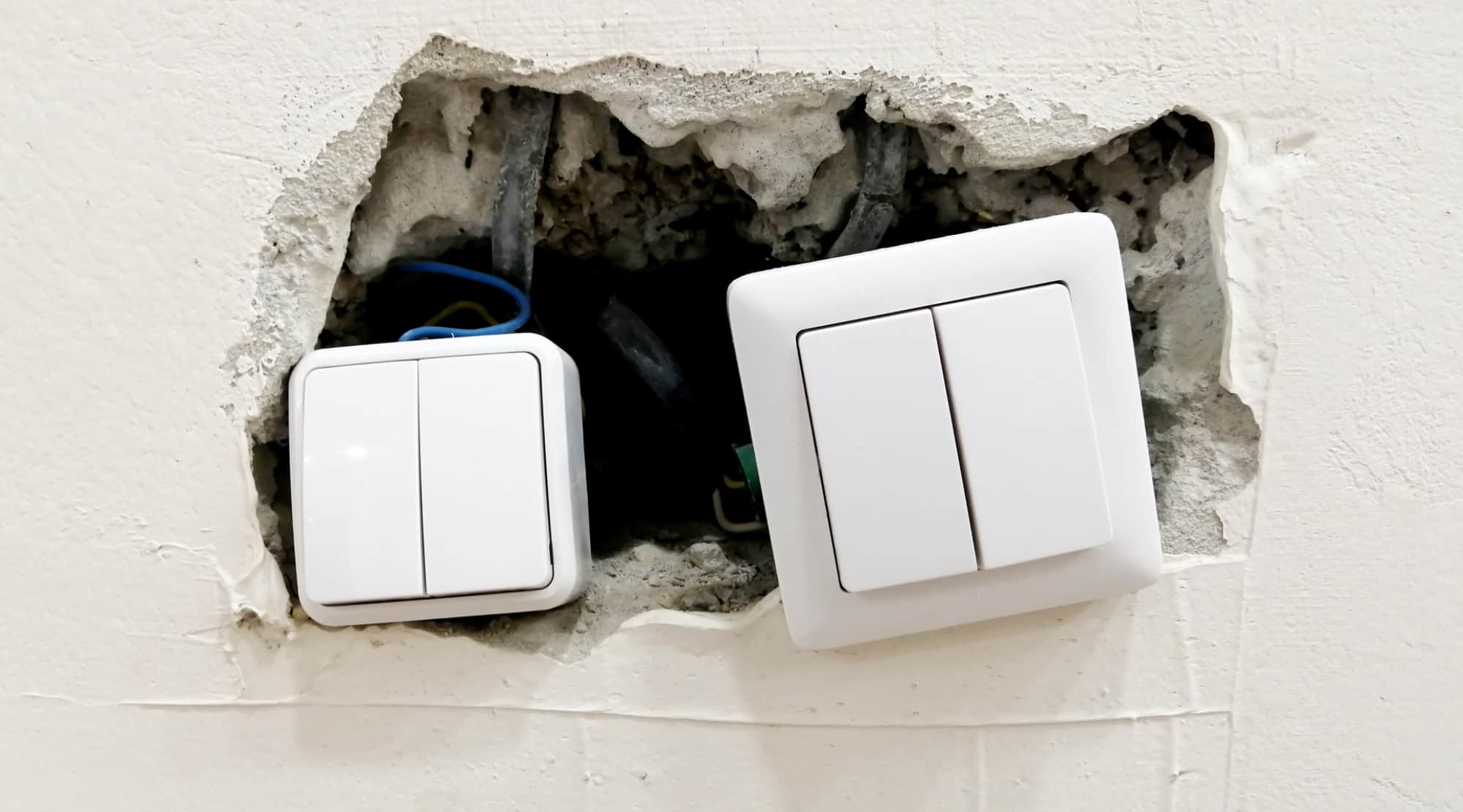
First things first, locate your main service panel and turn off the power in the area where you’ll be working. This will help prevent any electrical incidents. Once the power is off, remove the cover of the light switch to expose the switch and its internal wiring.
Take the time to inspect the screw connectors and look for any loose wires. Tighten these connectors until the wires are secured, being careful not to over-tighten them or damage the wires. If necessary, use wire strippers to cut and strip the ends of the wires before reconnecting them.
Check all the connections for neutral and ground wires, ensuring that wire nuts are tightly wound. Once you’ve checked and secured all the connections, replace the cover and turn the power back on from the main service panel.
Fixing loose wiring in a light switch can be a simple task as long as you take the proper precautions and follow these steps carefully. Remember to always prioritize safety and take your time.
Wear and Tear
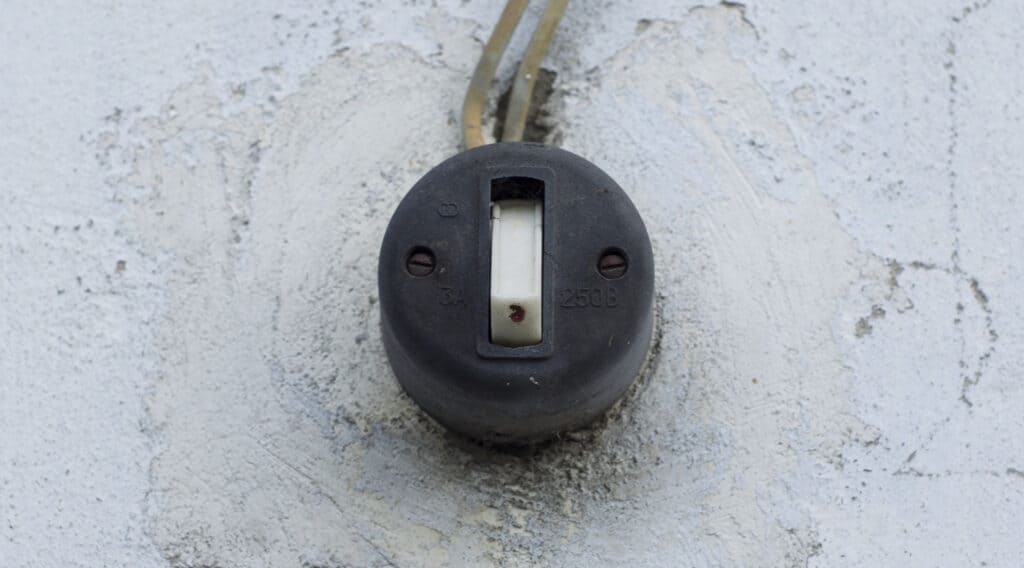
Light switches are an essential part of any home’s electrical system, but they are subject to wear and tear just like any other appliance. After years of use, switches will begin to lose their effectiveness, which can lead to a buzzing sound or other issues. Despite this, light switches are incredibly durable and can last up to 20 years or more if not damaged and properly used.
Because a switch’s lifespan is so lengthy, it can be challenging to determine when it has reached the end of its life. Some of the key signs that a switch may be experiencing wear and tear include a switch plate that overheats or starts cracking, flickering lights, or switches that malfunction or don’t turn on or off smoothly. If any of these indicators are present, it may be time to replace the switch to avoid a potential electrical hazard or further issues. In general, it is always a good idea to keep an eye on your light switches and be aware of their age, so you can catch any potential problems before they become severe
Conclusion
After exploring the various reasons why your light switch may be buzzing, it’s essential to remember that electricity is dangerous. If you’re not a licensed electrician, it’s risky to try and fix it yourself. Whether you’re dealing with insulated wires, loose wire connections, or damaged switches, attempting a DIY repair is not worth the risk to your health and safety.
If you suspect that wiring or other electrical components have caused the buzzing sounds, it’s vital to call an electrician to inspect it. They have the necessary education and experience to identify the problem and make sure it gets resolved without putting yourself or the property at risk.
Remember, electrical problems pose significant danger to individuals and properties. A buzzing light switch might be a minor inconvenience, but it also might indicate a hazardous situation. By not taking the proper measures to fix it, you could be risking your life and the lives of others. Always leave the electrical work to the professionals to ensure your home is safe and well-maintained.
You May Also Like...
Installation of Indoor or Outdoor Lighting
Find My Local Expert Installation of Indoor and Outdoor Lighting...
Read MoreHow to Replace a Pull Cord Switch
Find My Local Expert How to Replace a Pull Cord...
Read MoreHow to Replace a Light Fixture
Find My Local Expert How to Replace a Light Fixture...
Read MoreDo I need to install emergency lights for my home?
Find My Local Expert Do I Need to Install Emergency...
Read MoreNeed Help With Your Light Switch?
My Trusted Expert Guarantee
Experts Have Been Vetted & Approved
